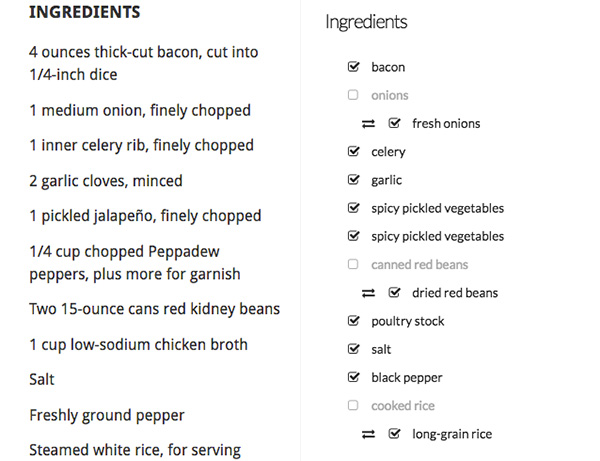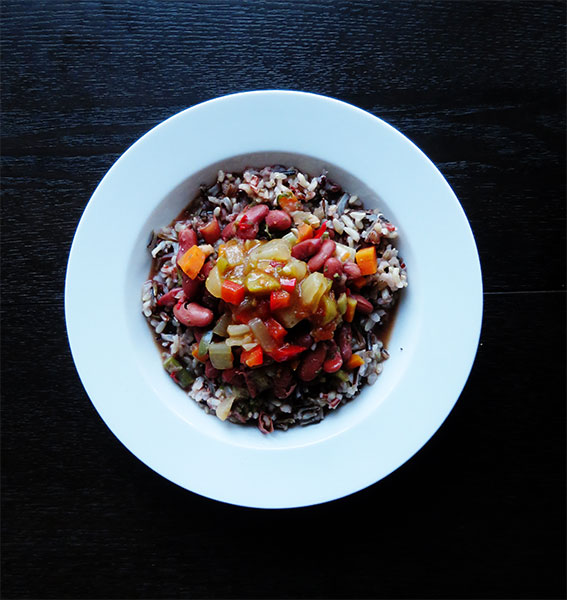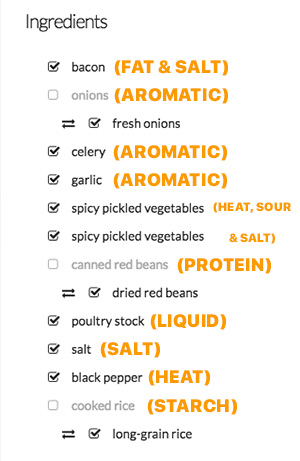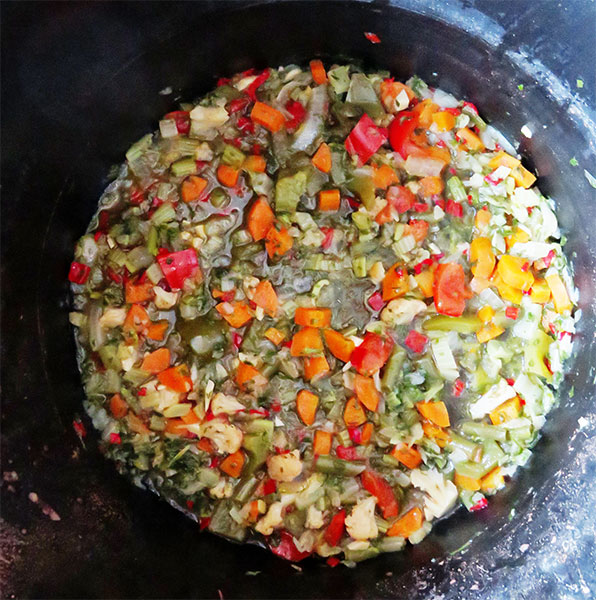Read only a few of my blog posts and you’ll often see words like “based on” and “adapted from” in reference to recipes. I use recipes to find flavor combinations and cooking techniques I have yet to try. Recipes provide a ready source of inspiration.
But who wants to pick out a bunch of recipes, make a shopping list, and go to the store, before you even start cooking? Then, there’s reading through recipes, measuring ingredients, and following detailed instructions. Stopping to realize that this is how people cook—well it’s no wonder so many don’t.
Recipes are great. Yet the true benefits of recipes eludes most of us. If I’m going to do all those steps, the result better be damn good. But let’s face it, most recipes aren’t worth the effort. In fact, the dishes I improvise myself provide the most satisfying meals we eat.
I’m not alone in wanting to use recipes without letting them monopolize my time and energy. In fact, I’ll bet every cook wants this effortless style of cooking. So with this post I’ll show you how you can take a recipe and adapt it to your needs.
Red Beans and Rice Example
An 11-ingredient recipe for red beans and rice showed up in my kitchenlister account.

Both the recipe title and a scan of the ingredient list tells me what’s special about this version. Pickles. I can summarize the method in a few steps. Cook bacon, add vegetables until soft, add beans and broth, boil, and serve over rice with peppers. At this point, I understand the essence of this dish—I no longer need to reference the original recipe. Now I can move on to creating my own variation.

Creating Your Red Beans and Rice Dish
What is the absolute simplest version of this dish? It would still have beans and rice, of course. Plus some fat, an aromatic for flavor, something pickled, and something spicy. How do I know this? Let’s take a look at that ingredient list again. This time I’ve added notes about what each ingredient contributes to the dish.

You may not know what role every ingredient plays in the dish. Still, considering the character of each ingredient will make your substitutions more successful. For example, I can cut out the bacon for a vegetarian version. By realizing the bacon is providing the fat in this dish as well, I know I need to use oil or butter instead. Conversely, there are other sources of salt besides the bacon. Thus it’s role as a salty element in the dish is less crucial.
Again we see the spicy pickled vegetables are critical. The pickles provide both salt and heat, as well as the only source of sourness to the dish. (As an aside, many people—myself included—are most likely to forget a sour note in their meals. When in doubt, reach for that bottle of vinegar to perk up a dish.)
Recall the original recipe uses two varieties of pickled chiles. The complexity these peppers provide can be emulated by using multiple ingredients instead. Add vinegar, sweet vegetables or chile peppers, red pepper flakes or other hot spices, and salt. I had home-canned spicy pickled vegetables (carrots, cauliflower, onions and peppers) on hand. I stirred those in with the aromatic vegetables. I scooped a spoonful of chow-chow, a sweet pickled vegetable relish, on at the end instead of the Peppadews.

Impromptu Cooking With Leftovers
Of course, the most convenient part of this dish was the flavorful leftovers. With a loaf of bread (fresh or frozen), smashed red beans on toast made tasty lunches all week.

WHAT RECIPES WILL INSPIRE YOU? CREATE YOUR OWN IMPROMPTU MEALS WITH KITCHENLISTER. START A FREE ACCOUNT NOW.
If you’d like to see more examples of recipe modifications in future posts, leave me a comment.
The recipes detailed in this post were part of my Week in Review meals for March 27–31, 2017.
